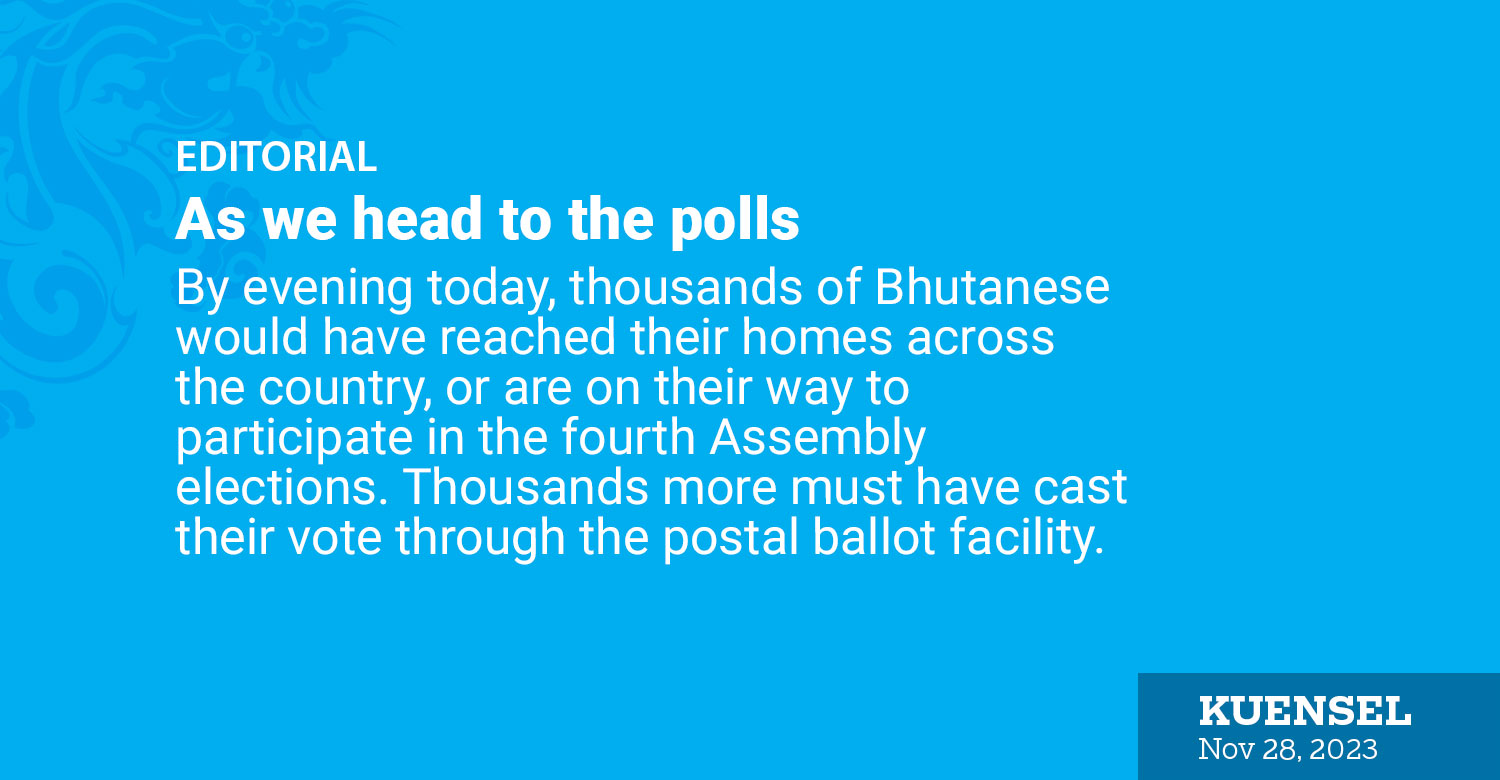By evening today, thousands of Bhutanese would have reached their homes across the country, or are on their way to participate in the fourth Assembly elections. Thousands more must have cast their vote through the postal ballot facility.
The choices are plenty, as for the first time, five political parties offer the electorate choices. This is a development considering just two parties contesting the first democratic elections 15 years ago. There is excitement in the air even if some are missing the controversy in this election even with five parties contesting.
What we want is choice, not controversy. The 2023-2024 election is already a success going by the choices and how smooth the campaign period has been. There were no serious accusations of corruption or bribery, and how the five parties are conducting their campaign.
All parties highlighted reviving Peljore (economy), pronounced as Panjo, making it the most talked about during the campaign period, including providing content for social media memes.
Our economy is not the healthiest since the Covid-19 pandemic. The emigration and brain drain issue, lack of fuel for private sector growth and an economic slowdown captured the public attention. There are expectations that a new government or the change in global and local scenarios could lead to improved economic growth. For the people, even if Gross National Happiness is the guiding development philosophy, an economic setback can cause panic and doubt. Many are convinced that the rest of the priorities are taken care of if the economy is on the right track.
However, are our political parties offering or convincing enough to assure voters ? The answer is a silent “No”. Therefore, parties are resorting to everything possible to win the votes and the election.
As we head to the elections, what we should ask ourselves and tell others is how have the parties convinced you. If you are agreeing to vote for a party because the candidate recharged a Nu 999 mobile internet data or invited you to the convention paying Nu 1,000 daily allowance, ask yourself if the party violated election rules. Although the Election Commission of Bhutan didn’t reveal the name of political parties, there were parties penalised with monetary fines for violating election rules.
The monetary fine levied is insignificant. What is significant is the respect for rules. Parties can pay fines and resort to illegal means to woo voters. What voters should know is that a party violating rules even before getting elected could violate a lot of things. An average villager or a taxi driver who attended a meeting where free lunch was provided will not fathom the implications. A party that violates and gets penalised even before the election could do more harm than help!
15 years since we transitioned to a democracy, a significant number of voters still rely on village elders, neighbours, the civil servant relative or their own connections with the candidate to make up their mind even if the party or the candidate tried to buy the vote. If it is still the case, the educated voters should explain to their relatives what is right and wrong.
Ap Wangdi visiting Thimphu is a good example. By chance, he was at a home in north Thimphu when a candidate visited and couldn’t deny the Nu 1,000 offer to recharge his phone. He is not a voter from the constituency and will vote for the party he thinks will benefit his field. He is a businessman.
As we wait for the poll day, we have every reason to believe that most registered voters will vote. We hope to see an impressive turnout in the election despite the ECB restrictions, not just because there are five parties, but because we are a part of the democratisation process. We also hope our voters are more educated to not be influenced by a Nu 500 voucher recharge card they received.


